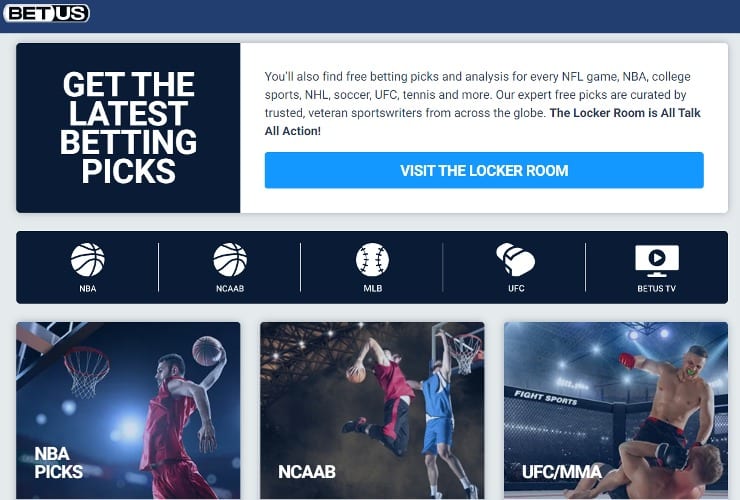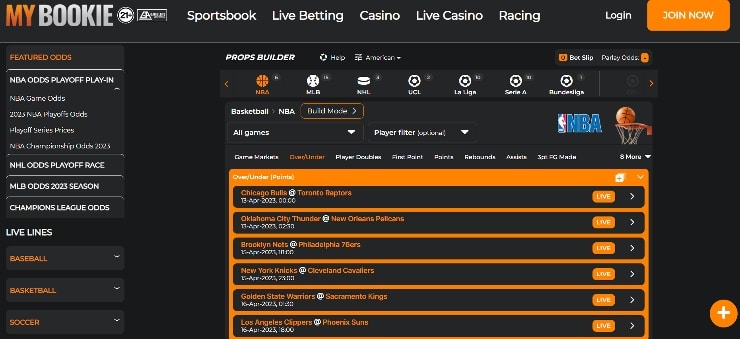Harrison, an experienced copywriter, combines his love for sports and writing at Basketball Insiders. He started his career at the FA (Football Association) writing e-newsletters and web copy for regional governing bodies. Today, he uses his experience and knowledge of the sports betting industry to create in-depth guides, articles, and reviews to help our readers get the most out of their sports betting experiences.
All posts by Harrison BroomA unit in sports betting refers to the consistent sum of money a bettor stakes on each wager. This concept originates from the widely recognized and commonly practiced bankroll management strategy known as flat betting.
Flat betting involves allocating an equal amount of money on every bet made, and this specific amount is referred to as a unit. For example, if a bettor’s unit size is $10, they would place $10 on each bet, regardless of the odds. Sports betting professionals, handicappers, and sharps assign a unit value to every wager they place, which allows them to maintain consistency without revealing actual monetary figures.
- Show full guideShow less
How are Units Used in Betting?
Now you know the answer to “what is a unit in sports betting,” you need to know how they’re used. In sports betting, one unit is typically designated for routine, everyday wagers. Bets with less confidence or conviction might warrant less than one unit, while those with greater certainty, albeit infrequent, could call for multiple units.
For instance, a sports betting expert might recommend the following picks for an NFL bet: New York Giants -4.5 vs. Washington Football Team (1 unit), Green Bay Packers +3.5 vs. Chicago Bears (1 unit), and Jacksonville Jaguars moneyline vs Houston Texans (2 units).

Source: BetUS.com When a reputable sharp posts such picks, the allocated units for each bet indicate their level of confidence. Suppose your single unit size is $20 and you decide to replicate these bets. In that case, you would stake $20 on the New York Giants, $20 on the Green Bay Packers, and $40 on the Jacksonville Jaguars. This flat betting approach ensures consistent wager amounts, as professional sports bettors prioritize maintaining stability over making wild and impulsive bets.
Why do Bettors Use Units for Sports Betting?
Regardless of your budget or risk tolerance, the sum of money you opt to spend on sports betting sites is ultimately a personal matter. So, instead of referring to your wagers in monetary terms, using units is a helpful alternative. Employing units not only preserves the privacy of your wager amounts but also fosters discipline and bankroll management, reducing the risk of making impulsive or irrational bets. Additionally, it offers a method to monitor your performance by comparing bets and outcomes using a consistent, uniform scale.
For example, bettors can track their performance over time by evaluating their success rate in terms of units won or lost. This approach also enables you to discuss and share your betting experiences, strategies, and results without revealing actual monetary amounts. For example, pro sports bettors often discuss their bets in terms of units, as follows:
“Last weekend, I placed a few wagers on the NFL games. I bet 5 units on the New York Giants covering the spread against the Washington Football Team, 2 units on the Green Bay Packers winning outright against the Chicago Bears, and 10 units on the Miami Dolphins’ moneyline victory over the Los Angeles Chargers. It turned out to be a great weekend, as all my bets hit, and I won a total of 17 units!” In this example, the high roller is effectively communicating their betting choices and results without revealing any specific monetary amounts. This allows them to maintain privacy while showcasing their success.
What Should My Unit Size Be?
Now you know the answer to “what is a unit in betting,” you need to determine your unit size. But how much is a betting unit? Ultimately, it depends on your budget and goals. The primary factor in determining your unit size is your comfort level with potential losses on each bet. Establishing a suitable unit size is crucial for effective bankroll management, as it can help you maintain discipline in your betting strategy and avoid uncomfortable losses.
- Assess your risk tolerance: First of all, you need to think about how much money you can afford to lose on each bet without going beyond your budget. If you are comfortable losing $10 per bet, your unit size would be $10, which you would allocate to routine everyday wagers.
- Establish a total bankroll: To manage your finances like a professional sports bettor, or a “sharp,” you must first determine your total bankroll amount. The bankroll represents the sum of money you are willing to risk over a specific period, such as a season, week, or month.
- Calculate your unit size: Once you determine your total bankroll, calculate 1% to 5% of it. For instance, if your bankroll for an NFL season amounts to $1,000, 1% equates to $10. The general consensus among sharp bettors and professional sports bettors is that your unit size should range between 1% and 5% of your total bankroll depending on your budget and experience level. In this example, 1% is $10, but if you prefer to wager 3%, your unit size would be $30, and so forth.
By following these steps, you can figure out the right unit size for your own needs and create a personalized betting strategy that accommodates your budget, risk tolerance, and betting goals.

Source: MyBookie.com How to Adjust Your Unit Size
As a sports bettor, it is essential to regularly reassess and adjust your unit size to accommodate fluctuations in your bankroll and to maintain an effective betting strategy. With that said, here are some of the key steps involved in unit calculator betting and adjusting your unit size.
- Reevaluate your bankroll: It’s wise to periodically review your bankroll to ensure it reflects your current financial situation. Changes in your budget or an increase/decrease in your betting funds might necessitate an adjustment in your unit size. Remember that your unit size should be a percentage of your total bankroll, typically ranging between 1% and 5%.
- Analyze your betting performance: Keep track of your betting history and results, noting any trends or patterns that emerge. If you consistently experience losses, it might be time to reduce your unit size to manage risk better. Conversely, if you are consistently winning and growing your bankroll, you might consider increasing your unit size to capitalize on your success.
- Consider your risk tolerance: Your unit size should be directly correlated with your risk tolerance. If you find yourself uncomfortable with the potential losses associated with your current unit size, consider reducing it. Conversely, if you feel more confident in your betting ability and can afford to take on more risk, you might consider increasing your unit size.
- Update your unit size: After evaluating your bankroll, betting performance, and risk tolerance, calculate a new unit size that aligns with your current financial situation and betting goals. As a rule of thumb, maintain a unit size that falls within the 1%-5% range of your total bankroll. For example, if your bankroll is now $2,000 and you decide to risk 2% on each bet, your new unit size would be $40.
- Maintain consistency: Once you have determined an updated unit size, you need to consistently apply it to your wagers. Consistency is crucial for effective bankroll management and facilitates an accurate analysis of your betting performance. Additionally, it helps you avoid impulsive bets and minimizes the risk of making irrational decisions based on short-term results.
When Should You Bet With Multiple Units?
Betting with multiple units is a strategic approach used by experienced bettors when they have high confidence in a specific outcome. Knowing when to bet with multiple units can help maximize potential gains while maintaining discipline and an effective betting strategy.
First, consider your betting performance and abilities. Only bet with multiple units when you have a strong reason to believe the potential rewards outweigh the risks. For example, if you have consistently made accurate predictions in basketball and believe a specific team is undervalued, you might allocate three units instead of your usual 1 unit.

Source: BetUS.com Quality information is another factor. When you have access to reliable data, expert analysis, or extensive research, you may justify betting with multiple units. For instance, if insider information suggests a key player’s injury will significantly impact a football game, you could increase your unit allocation.
External factors like injuries, weather, or team dynamics may also influence the decision to bet with multiple units. If you can predict the impact of these factors on a specific event, you may have a strong case for a larger wager. For example, when a top tennis player struggles in high-wind conditions and faces an opponent who excels in them, you might consider betting 2 units on the underdog.
Unit Betting Strategies to Try
Now that you know the answer to “what is a unit in betting,” you can now explore the different strategies and pick one that’s best suited to your experience level and risk tolerance.
Fixed-Unit Strategy
The fixed-unit strategy is a simple and conservative approach, perfect for novice bettors. In this strategy, you risk exactly one unit on every single wager, regardless of your confidence level in each bet. The advantage of this model is that it’s easy to track results and manage your bankroll, while the downside is that you won’t capitalize as much on hot streaks.
Percentage Strategy
In the percentage strategy, you base your wager size on a percentage of your existing bankroll. The primary benefit is that your bankroll increases incrementally as you win. However, the drawback is that it takes longer to recover from losing streaks.
Variable Strategy
The variable strategy is ideal for bettors who spend a significant amount of time researching before placing wagers. In this strategy, you risk multiple units on high-confidence bets and fewer units on lower-confidence bets. This strategy can lead to considerable bankroll growth but should be reserved for experienced bettors.
Kelly Criterion Strategy
The Kelly Criterion strategy is a mathematically complex wagering strategy that requires accurately assessing the probability of winning each bet. If done correctly, this model can maximize profits and minimize losses. However, it’s not suitable for those uncomfortable with advanced math or probability estimation.
Here’s an example of this strategy: You estimate the probability of winning two NFL wagers, Wager X with a 70% win probability, and Wager Y with a 40% win probability. Using the Kelly Criterion strategy, you determine how much of your bankroll to risk on each bet to maximize potential returns.

Source: MyBookie.com Tips for Managing Your Betting Bankroll
Managing your sports betting bankroll is important to ensure responsible gambling and prevent excessive losses. Here are some tips that you can use to manage your betting bankroll effectively:
- Understand the concept of a unit: To have proper bankroll management, it’s crucial to understand what is a unit in betting. A unit represents a fixed monetary value that you decide to risk on each bet, usually a percentage of your total bankroll. By defining a unit size, you create a consistent and systematic approach to betting, which helps in managing your bankroll effectively.
- Set a realistic unit size: Once you know what is a unit in betting, determine your unit size based on your overall bankroll. A common recommendation is to set your unit size between 1-5% of your total bankroll. This allows for flexibility in wagering while minimizing the risk of significant losses.
- Keep track of your bets: If you’re a serious bettor, using a spreadsheet can help identify strengths and weaknesses in your betting strategy. By analyzing your data, you can capitalize on successful betting trends and avoid areas where you’re consistently losing, ultimately leading to better bankroll management.
- Stick to your plan: Consistency is crucial in sports betting. By adhering to your established unit size and bankroll management strategy, you can avoid impulsive or irrational bets that may put your budget at risk. This discipline will also enable you to better analyze your performance over time and make informed adjustments as needed.
- Continuously educate yourself: Successful bankroll management relies on your ability to make informed decisions. Because of this, it’s important to stay updated on sports news, betting strategies, and learn from your past experiences to refine your approach and better manage your bankroll.
FAQs
How big should my betting unit be?
Your betting unit size should be a comfortable amount of money you can afford to lose, typically between 1% to 5% of your total bankroll (the money you’ve set aside for betting). It’s important to stick to a consistent unit size to manage your bankroll effectively.
What is the best way to bet with units?
One of the best ways to bet with units is to use a flat betting system, where you wager the same number of units on every bet. This helps manage your risk and maintain a consistent betting approach. For example, if your unit size is $10, always bet $10, regardless of the odds or your confidence level.
What does one unit play mean?
A one unit play means you’re placing a bet equal to one of your standard betting units. For example, if your betting unit is $10, a one unit play would be a $10 wager. This terminology is used to easily communicate bet sizes without discussing actual monetary figures.
Harrison, an experienced copywriter, combines his love for sports and writing at Basketball Insiders. He started his career at the FA (Football Association) writing e-newsletters and web copy for regional governing bodies. Today, he uses his experience and knowledge of the sports betting industry to create in-depth guides, articles, and reviews to help our readers get the most out of their sports betting experiences.
All posts by Harrison BroomHarrison, an experienced copywriter, combines his love for sports and writing at Basketball Insiders. He started his career at the FA (Football Association) writing e-newsletters and web copy for regional governing bodies. Today, he uses his experience and knowledge of the sports betting industry to create in-depth guides, articles, and reviews to help our readers get the most out of their sports betting experiences.
All posts by Harrison Broom